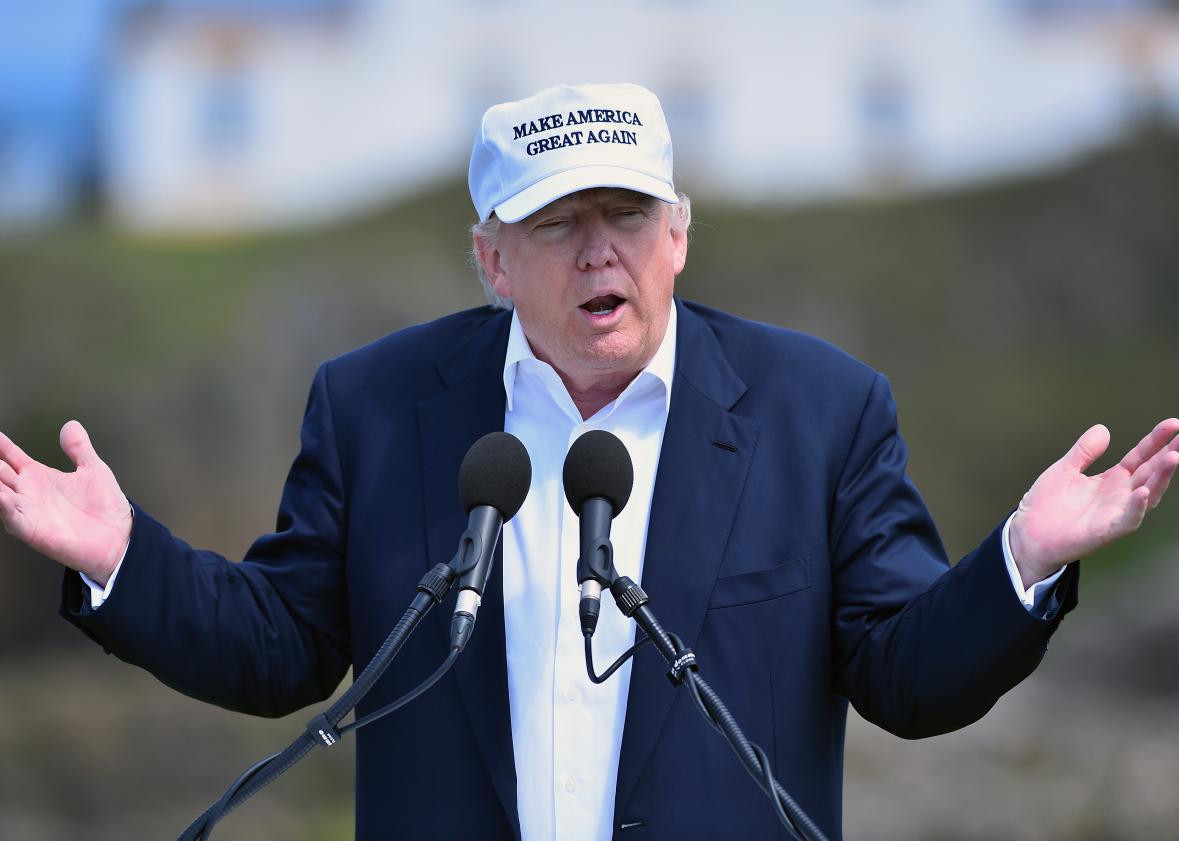See also: Donald Trump Celebrates How Great Brexit Will Be for His Golf Business
The catastrophic events in the United Kingdom on Thursday have sent markets southward, buoyed the hopes of right-wing nationalists from the Netherlands to Russia, and led to the understandable fear that a similar “reaction” could repeat itself on our shores in November. But if American voters are going to do a version of what British (and Northern Irish) voters just did—put aside their good sense and self-interest, in this case by voting for Donald Trump—it will be despite Trump’s continued campaign of self-sabotage and idiocy. For the second time in a month, Trump has greeted a genuine tragedy or crisis with aggrandizement and know-nothingness. He could still win, but it will be in spite of himself: His inability to be anything other than Donald Trump may just save the country from his reign.
Just last week we were all furiously speculating on what the deadliest mass shooting in modern American history—by someone who had pledged allegiance to ISIS—would do for Trump’s poll numbers. Republicans generally benefit after terrorist attacks, and Trump himself had staked out anti-ISIS ground early in his campaign. We soon got our answer: Trump was as incapable of using the Orlando tragedy to his political advantage as he is of staying on message during one of his many attempted “pivots” to respectability. After tweeting self-congratulations and seeming less presidential than even a skeptic thought imaginable, Trump gave a mean-spirited and much-reviled speech. He appeared unprepared for the moment and unseemly in his glee at what he saw as his clairvoyance. The polls didn’t budge.
The first hints from Scotland, where Trump is ridiculously staying for a couple days not to prove his foreign policy chops but to look in on a golf property, seem to offer more of the same. What would seem like a perfectly Trumpian move by the voters of the United Kingdom—the Brexit campaign was in large part a reaction to immigration; the next prime minister is likely to be Boris Johnson, a slightly sinister and slightly absurd Trump-lite figure; nationalism has reasserted its appeal—was instead another occasion for Trump to act childish. After landing in Scotland, he proceeded to tweet out congratulations to the place for its vote. Of course, Scotland had just voted to remain in the European Union, to little avail. When asked about Johnson, he replied, “Who is Boris? I don’t know him.” It was Trump at his most Trumpian: international relations as mindless solipsism.
But even worse than the boneheaded statements was the spectacle of a politician unthinkingly cheering as markets were tanking and amid general panic. Trump is simply not able to separate his own interest from the country’s or for that matter the world’s. While this may be true of many politicians, they at least hide it better. It’s early yet in the depressing British–EU crisis, and Trump could very well find a way to capitalize on it. But his early statements and behavior suggest that instead he will just be himself. It may be the only thing that protects us from eight years of nothing but him.
